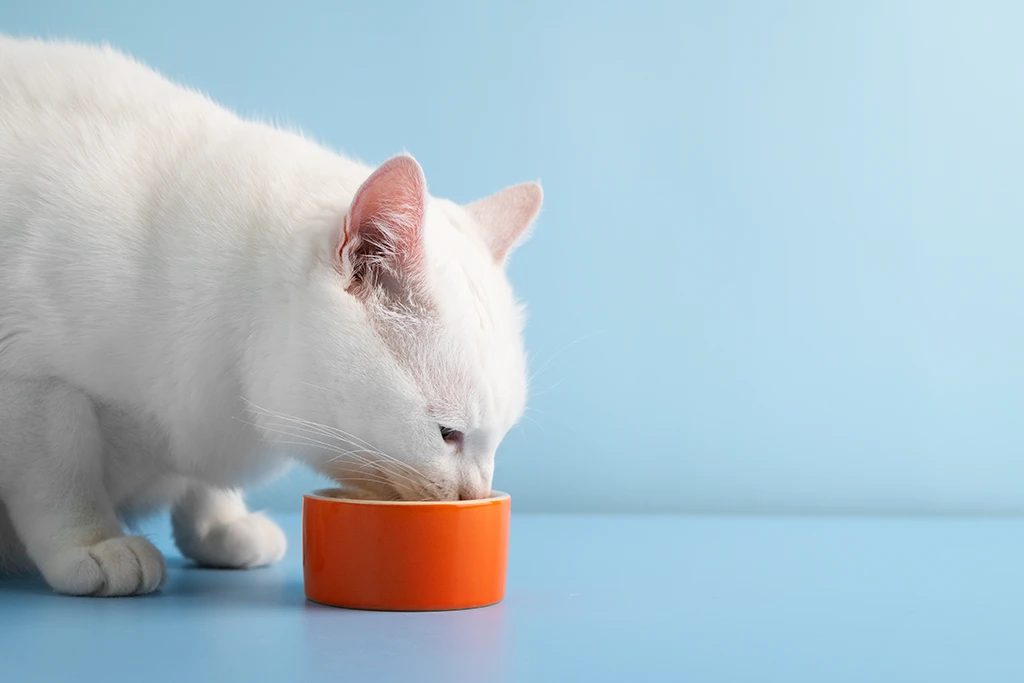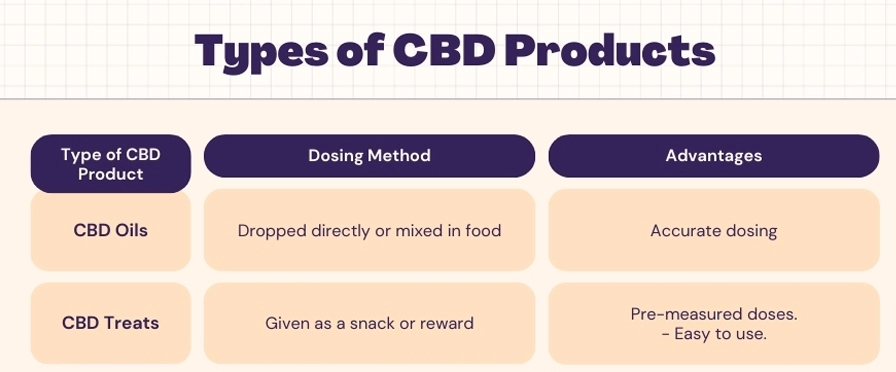

If a usually playful kitty seems a bit off, hiding under the bed, refusing treats, or not their usual self, they are probably struggling with anxiety. It’s more common than people think, and it is tough on both cats and their humans.
But what if there was a natural way to help a cat relax and feel more like themselves? That’s where CBD comes in. This plant-based compound is gaining popularity for its potential to soothe anxious kitties and bring back those happy purrs.
This guide has everything to know about CBD and how to use it for managing a cat’s anxiety. The discussion covers the basics and some professional tips to help owners find their way around a whole lot of CBD products. Let’s start with the very basic question: Do Cats have anxiety and how to spot it?
Table of Contents
ToggleAnxiety in cats isn’t always a straightforward diagnosis. Sometimes, it’s as clear as day – a normally social kitty hides under the bed, or a quiet companion starts excessive meowing. Other times, the signs are more subtle, lurking in changes in appetite or bathroom habits.

Anxiety manifests in a range of behaviors, some more obvious than others. Keep a watchful eye for these potential red flags:
Excessive Grooming or Hair Loss: Cats groom themselves compulsively, leading to bald patches or skin irritation (psychogenic alopecia).
Litter Box Problems: Accidents outside the litter box are not always about defiance. Anxiety causes cats to avoid the litter box and eliminate in inappropriate places.
Aggression or Territorial Behavior: This manifests as hissing, growling, biting, or scratching when approached.
Hiding or Escaping: Anxious cats seek refuge in hidden corners or try to escape their environment altogether to avoid interaction.
Trembling or Shaking: A shaking cat isn’t always just cold. It is a physical manifestation of their anxiety.
Pacing or Restlessness: Anxious cats seem unable to settle down, constantly pacing or fidgeting.
Changes in Appetite: Anxiety leads to a decrease in appetite, causing cats to eat less than usual.
Increased Vocalization: Excessive meowing, yowling, or other vocalizations are ways for cats to express their anxiety.
Cat anxiety doesn’t simply materialize out of thin air. It’s often a response to specific events or situations that disrupt their sense of security and well-being. Let’s delve deeper into some common triggers:
“Cats can develop separation anxiety syndrome, which can lead to behavior problems such as inappropriate urination, defecation, excessive vocalization, destructiveness, and psychogenic grooming,” according to the 2002 study by Schwartz, S., titled “Separation anxiety syndrome in cats: 136 cases (1991-2000).”
Cats are creatures of habit, and any disruption to their familiar surroundings sparks anxiety. Moving to a new home, rearranging furniture, or even introducing a new baby or pet into the household leaves a cat feeling unsettled and insecure.
“Cats display a lower frequency of stress-related behaviors when the owner is present, supporting the presence of the Secure Base Effect,” according to the 2021 study by Behnke, A., Vitale, K., & Udell, M., titled “The effect of owner presence and scent on stress resilience in cats.”
Loud noises like thunderstorms or fireworks, or stressful events like vet visits, are deeply unsettling for cats. Even seemingly minor incidents leave lasting emotional scars, contributing to anxiety later in life.
Physical discomfort or illness also triggers anxiety in cats. If a cat is experiencing pain or discomfort, they become more withdrawn, irritable, or exhibit other signs of anxiety.
Early socialization plays a crucial role in shaping a cat’s personality and behavior. Kittens who aren’t exposed to a variety of people, animals, and environments during their formative months may grow up to be more fearful and anxious in new situations.
“Additional socialization between 2 and 9 weeks of age leads to higher emotional support from cats and fewer behavioral problems indicating fear of humans,” according to the 2008 study by Casey, R., & Bradshaw, J., titled “The effects of additional socialisation for kittens in a rescue centre on their behaviour and suitability as a pet.”
Understanding the root cause of the cat’s anxiety is the first step toward effective management. By identifying the triggers, owners work with the pet’s veterinarian to develop a comprehensive plan to help their cat feel safe, secure, and calm.
CBD interacts with the endocannabinoid system (ECS), a complex network of receptors found throughout the cat’s body. By influencing the production and breakdown of endocannabinoids, CBD helps regulate various functions, including those related to stress and anxiety.
Although research on CBD’s effects on cats is still in its early stages, there is a growing body of evidence supporting its potential benefits for anxiety management. Studies have shown promising results in reducing anxiety-related behaviors and promoting a sense of calm in animals.
“Acute doses of CBD were found to reduce anxiety both in animals and humans, without having anxiogenic effects at higher doses,” according to the 2020 study by Sharpe, L., Sinclair, J., Kramer, A., Manincor, M., & Sarris, J., titled “Cannabis, a cause for anxiety? A critical appraisal of the anxiogenic and anxiolytic properties.”
Numerous studies suggest that CBD is generally safe and well-tolerated in cats. One of these is the 2022 study by Rozental, A., et al., which concluded that “Single orally administered CBD doses up to 80 mg/kg were safe and well-tolerated in cats, with dose-proportional pharmacokinetics across a broad concentration range.”
However, it’s crucial to prioritize quality and consult the cat’s veterinarian before introducing any new supplement to the cat’s routine. While rare, some cats experience mild side effects like drowsiness or an upset stomach, particularly when starting with higher doses.
The CBD market feels like a jungle, with a dizzying array of products vying for attention. It’s easy to get lost in the maze of options, but don’t worry, fellow cat parents! This guide aims to help owners make a safe and informed choice for their anxious kitty.
Not all CBD products are created equal. Some contain harmful contaminants or inaccurate levels of CBD. To ensure the cat’s well-being, it’s crucial to prioritize quality and safety when selecting a CBD product.
Reputable CBD companies have their products tested by an independent laboratory. These third-party lab tests verify the product’s purity, and potency, and ensure it’s free from harmful contaminants like heavy metals or pesticides. Look for products that readily provide these lab reports, often referred to as Certificates of Analysis (COAs).
THC, the psychoactive compound in cannabis, is toxic to cats. Always opt for CBD products that are THC-free or contain only trace amounts (less than 0.3%). This ensures a cat receives the potential benefits of CBD without any unwanted psychoactive effects.
A trustworthy CBD product has clear and concise labeling, indicating the amount of CBD per serving and providing dosage recommendations based on the cat’s weight. Avoid products with vague or misleading information.
Whenever possible, select CBD products made with organic hemp and natural ingredients. Avoid those containing artificial flavors, colors, or preservatives, which could potentially harm the cat’s health.
Remember, a cat’s health is of the utmost importance. Take the time to research and choose a reputable brand that values quality and transparency. By prioritizing safety and efficacy, owners confidently introduce CBD into their cat’s wellness routine and help them on their journey toward a calmer, happier life.

CBD isn’t a one-size-fits-all solution when it comes to feline friends. It’s available in a variety of forms, each with its own unique advantages and drawbacks. Let’s explore the most common types of CBD products designed for cats, empowering owners to make an informed decision that best suits their furry companion’s needs and preferences.
CBD isn’t a one-size-fits-all solution for feline friends. Cats have unique preferences and needs. Hence CBD comes in a variety of forms, each with its own set of advantages and drawbacks. Let’s explore the diverse world of CBD products available for cats to help owners make an informed choice for their furry companion.
Direct Administration or Mixing with Food: CBD oils are administered directly into the cat’s mouth using the provided dropper or conveniently mixed with their food. This adaptability makes them a great option for cats with varying preferences.
Precise Dosing: The dropper allows for accurate measurement, ensuring the cat receives the exact dosage recommended by the attending veterinarian.
For those finicky felines who turn their noses up at oils or capsules, CBD treats offer a delectable and hassle-free alternative. These treats are infused with CBD and come in a variety of flavors and textures to entice even the pickiest eaters.
Easy Administration: Simply offer a CBD treat to cats as part of their daily routine or as a reward for good behavior.
Stress-Free Dosing: CBD treats come pre-measured, eliminating the need for guesswork when it comes to dosage.
CBD capsules offer a convenient and pre-measured dose of CBD, making them a great option for cat owners seeking a no-fuss solution.
Easy to Hide: Capsules are easily concealed in a cat’s food or administered directly if a cat is cooperative.
Accurate Dosing: Each capsule contains a specific amount of CBD, ensuring consistent dosing.
When choosing a CBD product for a cat, it’s essential to consider their individual preferences and any specific needs they have.
Taste and Texture Preferences: If a cat is picky about their food, opt for a CBD product with a flavor or texture they enjoy.
Ease of Administration: Choose a product that is easily administered to a cat without causing them stress or anxiety.
Specific Needs: If a cat has difficulty swallowing capsules, oils, or treats are the more suitable option.
Remember, the ideal CBD product is one that the cat readily consumes and that aligns with their unique needs and preferences.
It’s no surprise that a Great Dane will likely need a different CBD dosage than a Chihuahua. The size and weight of a pet play a significant role in determining the appropriate amount of CBD. Generally, larger animals require higher doses to achieve the desired effects.
Kittens (less than 1 year): Start with very low doses (0.1-0.2 mg of CBD per pound). Monitor for any adverse effects before increasing.
Adult Cats (1-7 years): Use standard dosage recommendations based on weight (e.g., 0.2-0.5 mg of CBD per pound). Adjust gradually for effectiveness.
Senior Cats (8+ years): Older cats may have slower metabolisms and underlying health conditions. Start with a conservative dose (0.1 mg per pound) and increase slowly under veterinary supervision.
Anxiety: Lower doses (0.2 mg per pound) are often sufficient.
Chronic Pain or Arthritis: Higher doses (0.5 mg per pound) may be required.
Seizures or Severe Conditions: Up to 1 mg per pound, with veterinary approval.
CBD doesn’t work instantly, and its effects depend on the product type and the pet’s unique physiology. Here’s a general timeline:
CBD Oils: Fast absorption into the bloodstream. Effects are usually noticeable within 15-30 minutes and last up to 4-6 hours.
CBD Treats: Slower absorption due to digestion. Effects may take 30-90 minutes to set in but often last longer, around 6-8 hours.
Topicals: Effects on localized areas (e.g., pain relief) can appear within 10-15 minutes, but these are not systemic.
For chronic conditions like arthritis or anxiety, consistent use over 1-2 weeks is often required to see noticeable improvements.
CBD is a valuable tool, but it’s often most effective when combined with other anxiety management techniques:
Environmental Enrichment: Provide plenty of hiding spots, vertical space (cat trees, shelves), and interactive toys to keep the cat engaged and stimulated.
Behavioral Training: Positive reinforcement and desensitization help a cat learn to cope with anxiety triggers.
Pheromone Therapy: Pheromone sprays or diffusers create a calming home atmosphere.
Veterinary Support: Work with the cat’s vet to develop a comprehensive anxiety management plan tailored to the cat’s individual needs.
Yes, when used correctly, CBD is generally safe for cats. Always choose high-quality products designed specifically for pets, and consult a veterinarian before starting.
No. CBD is non-psychoactive and does not produce a “high.” Ensure the product contains no more than 0.3% THC.
This depends on the condition being treated. For anxiety or acute issues, once or twice daily is typical. Chronic conditions may require consistent dosing every 8-12 hours.
While it’s difficult to overdose on CBD, excessive doses can lead to side effects like lethargy, diarrhea, or loss of appetite. Start low and increase gradually.
Common side effects include drowsiness, dry mouth, and mild gastrointestinal upset. These usually subside with dose adjustments.
Keep CBD products in a cool, dry place away from sunlight to maintain potency.
CBD offers a promising natural option for managing anxiety in cats. By understanding how it works, choosing the right product, and following proper dosage guidelines, owners help their feline friends find relief and live a happier, more relaxed life. Remember, always consult a veterinarian before starting any new supplement, and be patient in finding the perfect CBD routine for a cat.

Table of Contents
Toggle